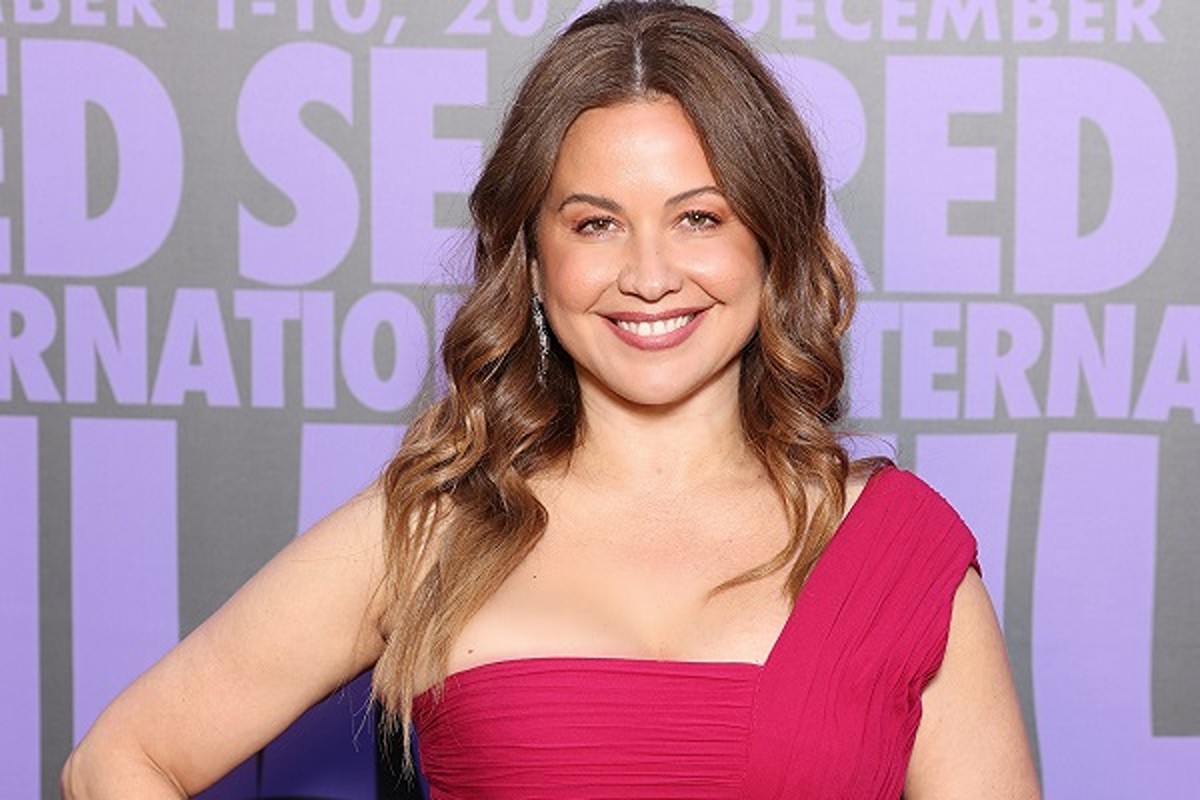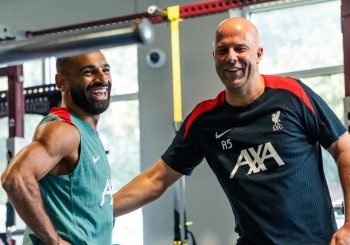From interviewing American actor Matt Damon two days after giving birth, to answering work messages at 1 a.m. and tirelessly building her highly popular program Scoop with Raya, Lebanese journalist and TV host, Raya Abirached, has undeniably become the Arab world’s most famous media icon. Yet, it all began with a simple premise: a girl who simply loves movies.
In today’s social media landscape, where Gen Z wrestle with the choice of building their own platform or withdrawing from it altogether, Abirached’s journey from television to digital media provides lessons for young Arabs aspiring to enter the media and entertainment industry.
The opportunity to learn from these lessons finally came at The Youth Summit 2025, held at The American University in Cairo (AUC) on 19–20 September. Designed specifically for Egypt’s Gen Z, the summit centered on the theme of “Taking the Leap.”
For Abirached, however, her own leap in media was neither drastic, calculated, nor even strategic, as some might assume; rather, it was rooted in her identity as a self-proclaimed movie girl.
With that simple passion, she held onto it and fueled it consistently throughout her career.
“Who am I? I’m the movie girl. I’m a girl who loves movies,” Abirached said. “It was a very simple idea, and that simple idea ended up becoming a flagship movie show for the entire region. Not because I planned it, but because I really love movies and I happened to be very good at television.”
While there were many forces pulling at her to change the concept of the show and turn it into glossy entertainment or more of an eye-candy spectacle, Abirached stayed true to its essence, never once altering it. In today’s social media world, where going viral is seen as the only measure of success, Abirached’s 15-year experience proves that this is not always the case.
“Very often they tried to change the show into an entertainment or gossip show, but I resisted,” Abirached said. “I am the movie girl. I love movies. And you love the show because you feel that I love movies. That passion is what made people want to see films in the cinema. It was a simple concept, but it worked because it was real.”
From Television to TikTok
Since its launch in 2005 on MBC2, Scoop with Raya has become Abirached’s gateway for introducing Hollywood and international celebrity culture to Arab audiences. What truly set the show apart, however, was not only its high-profile interviews with stars like Angelina Jolie and Brad Pitt, but Abirached’s own hallmark of natural, long-form conversational style that gave the program its distinct identity and growing recognition.
With the rise of social media in the 2010s, the show adapted by opening new channels of interaction, from taking fan questions on Twitter to incorporating digital engagement directly into its format. Over time, Scoop with Raya has transitioned from a traditional television program into a platform that speaks to the fluid, fast-paced world of social media. Yet at its core, Abirached has tried to maintain the power of meaningful conversation, even in the world of 10-second clips.
“It’s very interesting for me now to try to find ways to live on social media. I take my interviews and chop them into small pieces of interesting things so that we can have a narrative on social media. But, I still crave long form,” she shares.
“I still think that it’s more interesting for me to sit down and speak to an actor for 20 minutes than it is to speak to them for two minutes. I still find conversation interesting.”
The rise of TikTok and other short-form platforms often raises the question of whether long-form still has a place. Research has even found that short videos receive more likes, comments, and shares than long videos. Though Abirached argues that the answer is not about declaring one format “better” than the other, but about recognizing that audiences consume both in different ways.
“TikTok has 10-minute videos, so I don’t think long format is dying,” she says. “I think the long format is not on trend at the moment, but it will come back.”
Podcasts, she argues, prove that long-form storytelling and conversations continue to thrive, even in the age of scrolling. “Podcasts are a form of longer content that people love to do. They have found a way to listen. It’s just a moment of change.”
Audiences have undeniably transformed. What was once consumed on a couch over a meal is now watched on the move, while walking, cooking, or even doing one’s makeup, in just a matter of seconds. The viewers who once sat through a 20-minute interview now expect content they can carry with them everywhere, which raises the question: how can creators and journalists follow their audiences into this fast-paced world without losing meaning or originality?
For Abirached, it is about knowing your own ‘three seconds’; knowing who you are and how quickly you can deliver something authentic and different in a short span of time. “What are your ‘three seconds’? That’s what will make you successful. Not doing what others are doing because of a trend, but creating your very own trend because of who you are and what you uniquely bring to the world,” she says.
As audiences grow accustomed to consuming quick content anytime and anywhere, success is increasingly measured in immediacy. The focus on chasing the next viral video often replaces the long-term vision needed to plan for the next five years, which Abirached argues is an unsustainable trend.
“Sometimes Gen Z feels like success can come instantly with a great social media post or a viral moment. I don’t come from that generation. I come from a generation where you build your career step by step, with patience and hard work. It’s like healthy food, it lasts longer,” she added.
Research backs up her point. A recent 2024 Pew Research Center analysis revealed how fleeting online content really is, as by October 2023, a quarter of all webpages that existed between 2013 and 2023 were no longer accessible. Nearly one in five tweets had also vanished from public view within months of being posted.
For young journalists and aspiring media professionals, this essentially means that digital content is fragile. Online posts can disappear at any moment, leaving nothing behind, and that impermanence is a stark reminder to build careers and legacies on more than just the fleeting nature of the internet.
“Success that comes too quickly doesn’t last long. You might shoot a viral video and get 100,000 followers, but what about five years from now? That’s why I believe in perseverance,” she says.
Looking ahead, Abirached believes that beyond the fleeting pull of virality, fame, or success, what endures is authenticity. In a world consumed by endless scrolling, she finds herself returning to the lessons of her television days, when genuine conversation held weight, as a guide for the future.
“I was asked to post much more than I wanted, and I resisted. Maybe it meant I wouldn’t have the engagement others had, but for me, mental health and authenticity matter more.”







Comments (0)